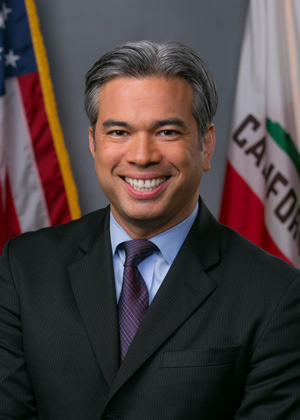June 11, 2021 - OAKLAND – California Attorney General Rob Bonta on Thursday joined a coalition of 23 attorneys general in filing an amicus brief in the U.S. Supreme Court in  support of the Centers for Disease Control and Prevention’s (CDC) eviction moratorium. Earlier this year, a coalition of property owners, property managers, and trade associations filed a lawsuit seeking to dissolve the moratorium, a move which would cause an unprecedented wave of evictions in states and local communities that lack their own protections for tenants. Families facing sudden removal from their homes could be placed in financial harm and physical danger due to the continued pandemic.
support of the Centers for Disease Control and Prevention’s (CDC) eviction moratorium. Earlier this year, a coalition of property owners, property managers, and trade associations filed a lawsuit seeking to dissolve the moratorium, a move which would cause an unprecedented wave of evictions in states and local communities that lack their own protections for tenants. Families facing sudden removal from their homes could be placed in financial harm and physical danger due to the continued pandemic.
California currently provides its residents with pandemic-related eviction protections, but the CDC moratorium provides a baseline of protection for states to build from. According to the CDC, up to 40 million American renters are at risk of eviction, and at least 4 million are at “imminent risk.” The agency also estimates that thousands of Americans have already died of COVID-19 due to individual states prematurely ending eviction protections.
“Too many families are barely scraping by as a result of the COVID-19 pandemic and resulting economic hardships. We cannot allow people who are struggling to recover their finances to be torn from their homes and left on the street at this precarious time,” said Attorney General Bonta. “As the People’s Attorney, my primary job is to stand up for our most vulnerable communities and protect the health and safety of all Californians. That's why I'm joining a coalition of state attorneys general today in urging the Supreme Court to keep the moratorium in place as the issue is resolved in court.”
The national eviction moratorium, begun under the federal CARES Act, has been a powerful tool in containing the spread of COVID-19. When the CARES Act expired in July 2020, the CDC imposed a similar eviction moratorium, which was continued by the Biden Administration and applies to all residential properties nationwide.
To be eligible, a tenant must submit a declaration attesting, in part, that they are financially unable to pay full rent, meet certain income requirements, and would be homeless or forced to move into a shelter or shared residence if evicted. The moratorium was originally set to expire on December 31, 2020, but the CDC has extended it multiple times and it is now scheduled to run through June 30.
On May 5, the U.S. District Court for the District of Columbia ruled that the CDC had overstepped its authority in imposing the eviction moratorium, but stayed its decision, keeping the moratorium in place pending appeal to prevent harm to renters. Shortly after, the Alabama Association of Realtors filed an emergency application to vacate the stay with the U.S. Supreme Court. In their brief in support of the CDC, the multistate coalition urges the Supreme Court to leave the stay in place, arguing that an immediate dissolution of the moratorium would force millions of vulnerable individuals from their homes into the streets, into crowded shelters, or into contact with family and friends within or across state lines in the midst of an ongoing pandemic.
The coalition highlights that more than half of U.S. adults remain unvaccinated, and that those at risk of eviction are disproportionately unlikely to be vaccinated. Further, vaccination rates in the Black and Latino communities remain relatively low, and Black and Latino individuals are most at risk of eviction during the pandemic.
Californians also enjoy eviction protections under Senate Bill 91, the COVID-19 Tenant Relief Act, which Attorney General Bonta supported as an Assemblymember. The eviction moratorium established by SB 91 continues to protect California tenants, but is set to expire on June 30 unless extended by the state Legislature.
California residents may also have access to additional protections under other federal, state, and local landlord-tenant laws. Tenants who wish to learn more about their rights are encouraged to contact a legal aid office, which are entities that provide free legal help. To find a legal aid office near where you live, please visit https://www.calbar.ca.gov/Public/Need-Legal-Help/Free-Legal-Help.
In filing the brief, Attorney General Bonta joins the attorneys general of the District of Columbia, Connecticut, Colorado, Delaware, Hawaii, Illinois, Maine, Maryland, Massachusetts, Michigan, Minnesota, Nevada, New Jersey, New Mexico, New York, North Carolina, Oregon, Pennsylvania, Rhode Island, Virginia, Washington, and Wisconsin.
A copy of the brief is available here.
Source: CA. DOJ








